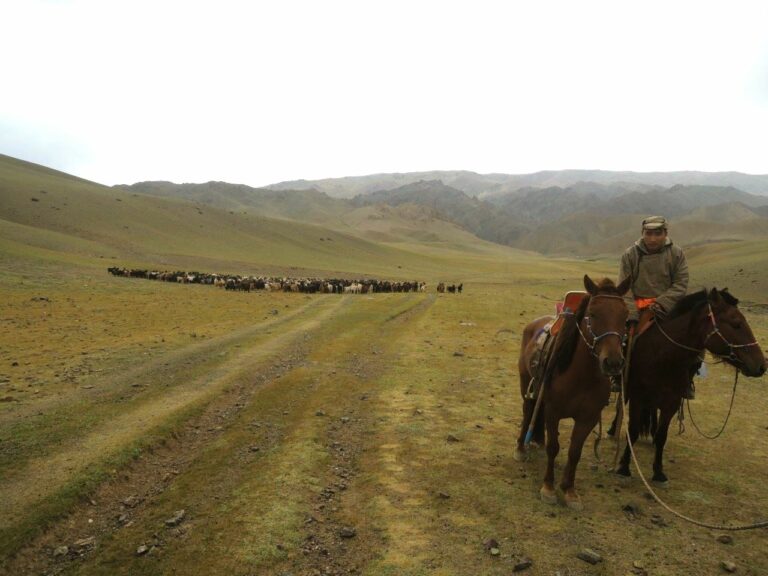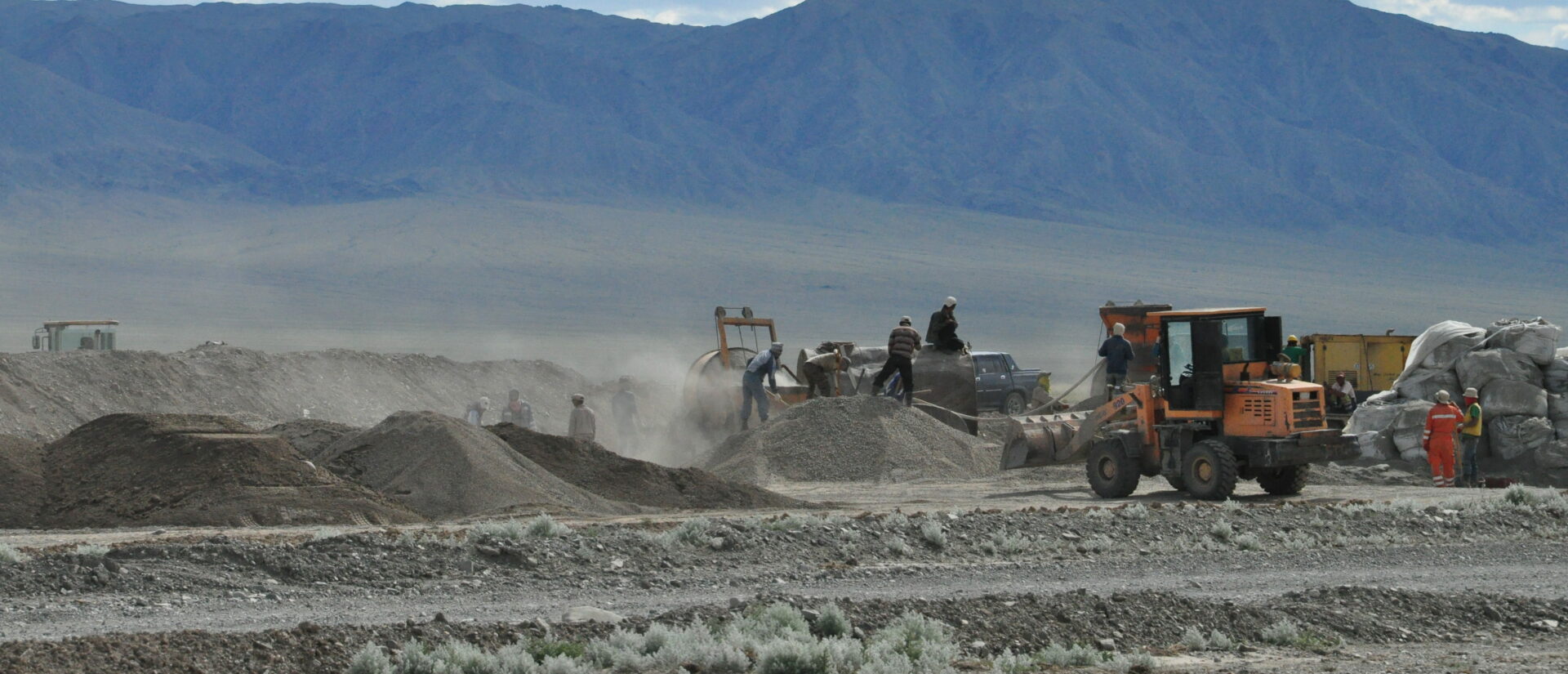
Iron ore mine threatens nomadic herders in Mongolia
Nomadic herders in rural Mongolia face health impacts, displacement and intimidation as a result of a large iron ore mine, financed by the European Bank for Reconstruction and Development (EBRD). These impacts are directly related to business factors such as the need for infrastructure, mine lifespan and production targets. If such factors come into conflict with meaningful stakeholder engagement, rights are deprioritized and community livelihoods threatened. The involvement of a development finance institution, which requires compliance with social and environmental standards, is no safeguard against such adverse impacts.
These are some of the conclusions of a case study on the Mongolian iron ore company Altain Khuder, published by SOMO today. This report is the first in a series of reports on the social and environmental impacts of the global iron ore sector and follows a fact-finding mission report by CEE Bankwatch, SOMO and OTWatch, published last week.
Compensation
Altain Khuder is the second largest iron ore producer in Mongolia. It has owned and operated the Tayan Nuur iron ore mine in the province of Gobi Altai since 2006. The company resettled herders that were living in the mining area. While the company compensated these herders, the SOMO-report shows that cash compensation is not appropriate when land is communally owned and livelihoods are land based.
One of the factors that enhance the risk of future resettlement problems is the price volatility of iron ore; in 2014 iron ore prices dropped by 40%. If prices rise again, companies will ramp up production to take advantage of the short window of opportunity created by higher prices, leaving little time for careful design and proper implementation of resettlement programs.
Those who openly criticize the company have been charged with ‘organized crimes of defamation’. The company’s approach to local communities can be explained by the relatively short lifespan of the mine, as it reduces the incentive to act as a good neighbour.
Impacts
Furthermore, the roads that are used for the transportation of the ore generate dust and noise. Herders report that dust from the road pollutes the grass and leads to sicknesses in the animals. They indicate having lost up to several dozens of animals due to dust-related illnesses. Furthermore, the herders feel that they have not been adequately consulted about the construction of the new road, despite the fact that it cuts through their pastures and limits the grazing areas for their animals. According to senior researcher Tim Steinweg “such infrastructure development is often presented as a benefit to surrounding communities. However, newly built infrastructure can cut through land that is already in use, and increased traffic can have significant health and safety impacts, even for communities living further afield from the actual mine.”
No safeguard
As a result of the financial relationship between Altain Khuder and the EBRD, the company has an obligation to comply with the Performance Requirements (PRs) of the EBRD. This report suggests that several PRs have not been adhered to. According to researcher Anne Schuit “the social and environmental standards that are included in its investment strategies make the EBRD and other development banks distinctly different from mainstream investors. However, as this case study shows, the involvement of the EBRD is no safeguard against adverse social and environmental impacts.”
Read here(opens in new window) the story by CEE Bankwatch Network on the Mongolian herders.
Read here the article on SOMO’s new methodology to analyse business strategy in relation to human rights violations.
Read a column on the subject written by SOMO researcher Tim Steinweg previously published at the Oneworld website.
Do you need more information?
-

Lydia de Leeuw
Researcher
Partners
Related content
-

-
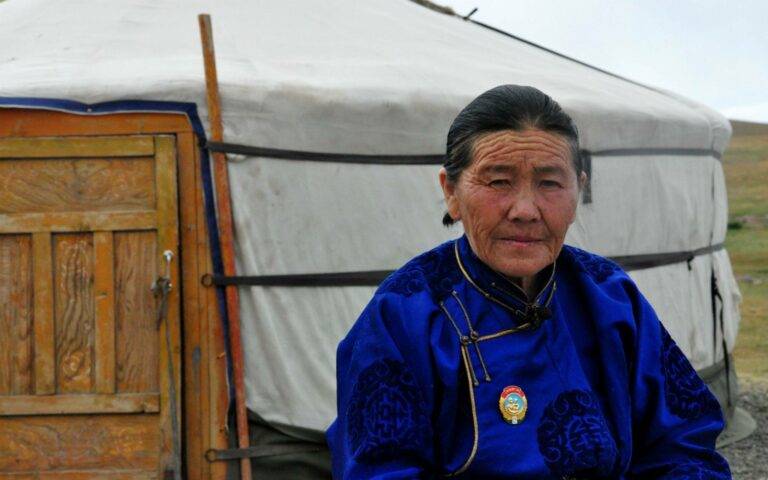
-
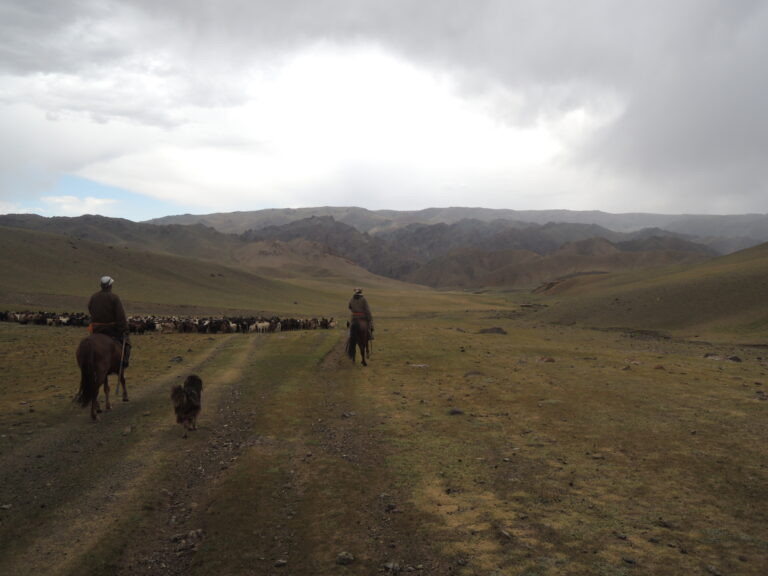 European Development Bank accepts complaint submitted by Mongolian herders about iron ore mining companyPosted in category:NewsPublished on:
European Development Bank accepts complaint submitted by Mongolian herders about iron ore mining companyPosted in category:NewsPublished on: -
Impacts of the global iron ore sector Published on:T. SteinwegPosted in category:PublicationT. Steinweg
-
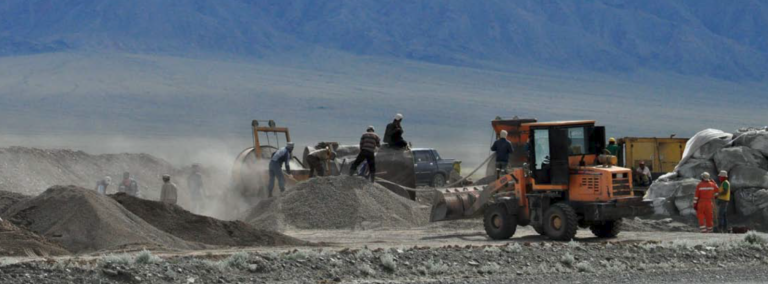
-
